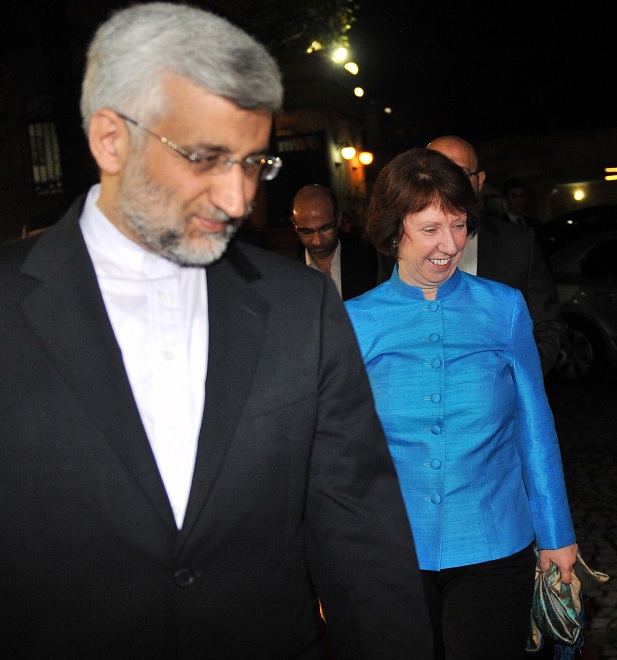By Heba Fahmy and Mai Shams El Din / Writing by Amira Salah-Ahmed
CAIRO: Tens of thousands of protesters poured into major squares in cities around Egypt on Friday, reasserting their stance that the revolution continues until demands are met and justice is served for the martyrs.
In scenes reminiscent of the early days of the January 25 Revolution, and in one of the most organized and ideologically all-encompassing turnouts in months, Egyptians reiterated a clear message that the revolution is not over until the regime with all its affiliated officials has fallen.
Tens of thousands who were in Tahrir Square, the symbolic heart of the revolution, broke out in chants of “one hand” after Friday prayers. Hundreds had set up camp in the square the night before and by morning thousands were already present as numbers swelled well into the afternoon.
Four stages were set up around the square: the usual main stage, one by the Muslim Brotherhood, another by Al-Wafd Party and a fourth by the National Association for Change.
Protesters from outside of Cairo joined Tahrir from Ismailia, Fayoum, Aswan and Suez.
During the Friday sermon, preacher Mazhar Shaheen called for a presidential council to replace the ruling Supreme Council of the Armed Forces (SCAF). He also demanded swift public trials for officials of the former regime.
As national songs played in the background and Egyptian flags fluttered and were carried around the square, many protesters said they felt the regime has not been truly toppled.
One fringe group broke the agreement and put up a “Constitution First” banner, reflecting a debate that has polarized the political scene, were asked to step down.
“The Egyptian people have suffered grave injustice for 30 years, and until now no positive step has been taken — even after the revolution,” Mohamed Bayoumi, 78, said.
A main impetus behind what was called “Persistence Friday” or “Revolution First Friday” is that justice be served for martyrs of the revolution after a number of policemen being tried for killing peaceful protesters were released on LE 10,000 bail in Suez earlier this week.
“How could the officers accused of killing martyrs be released on bail for LE 10,000?” 41-year-old Azza Mansour from Ismailia said, “The martyrs who died are not chickens, they are humans.”
Outrage in Suez resounded across the country as stories emerged about families of the victims being pressured and paid to drop charges. Protesters on Friday demanded rights for both the martyrs’ families as well as those injured during the early days of the revolution.
Many chants demanded that those involved in ordering the killing of peaceful protesters as well as those who carried out the orders be tried fairly and swiftly.
Ousted president Hosni Mubarak and former interior minister Habib El-Adly are being investigated for these charges, as well as security administrators, high-ranking officers and policemen in several governorates.
A group of school children toured the square calling for the execution of Mubarak.
Some protesters chanted against Defense Minister and Head of SCAF Field Marshal Mohamed Hussein Tantawi and against the military trial of civilians.
A small march from the direction of Talaat Harb Street called for the fall of the SCAF and Tantawi, but the call quickly fizzled away.
“Our revolution is being stolen. We need to unite and rid this country of corruption,” Mansour said.
Many independent and parallel unions and syndicates were present, calling for the disbandment of the official workers’ union which they feel is unrepresentative and is affiliated with the former regime.
Banners against head of the Central Auditing Agency Gawdat El-Malt were hung in the square as calls for the independence of the judiciary, purging all ministries of corrupt leadership, and the cleansing of state media resonated.
Many tents were set up in Tahrir Square for a planned open-ended sit-in until demands are met. Protesters without tents, however, were split on whether they will spend the night and join the sit-in.
